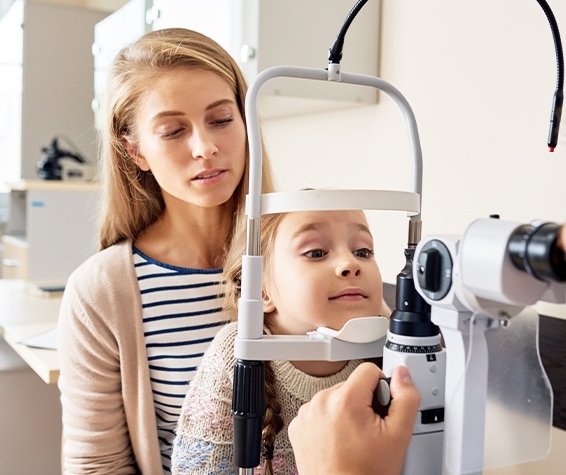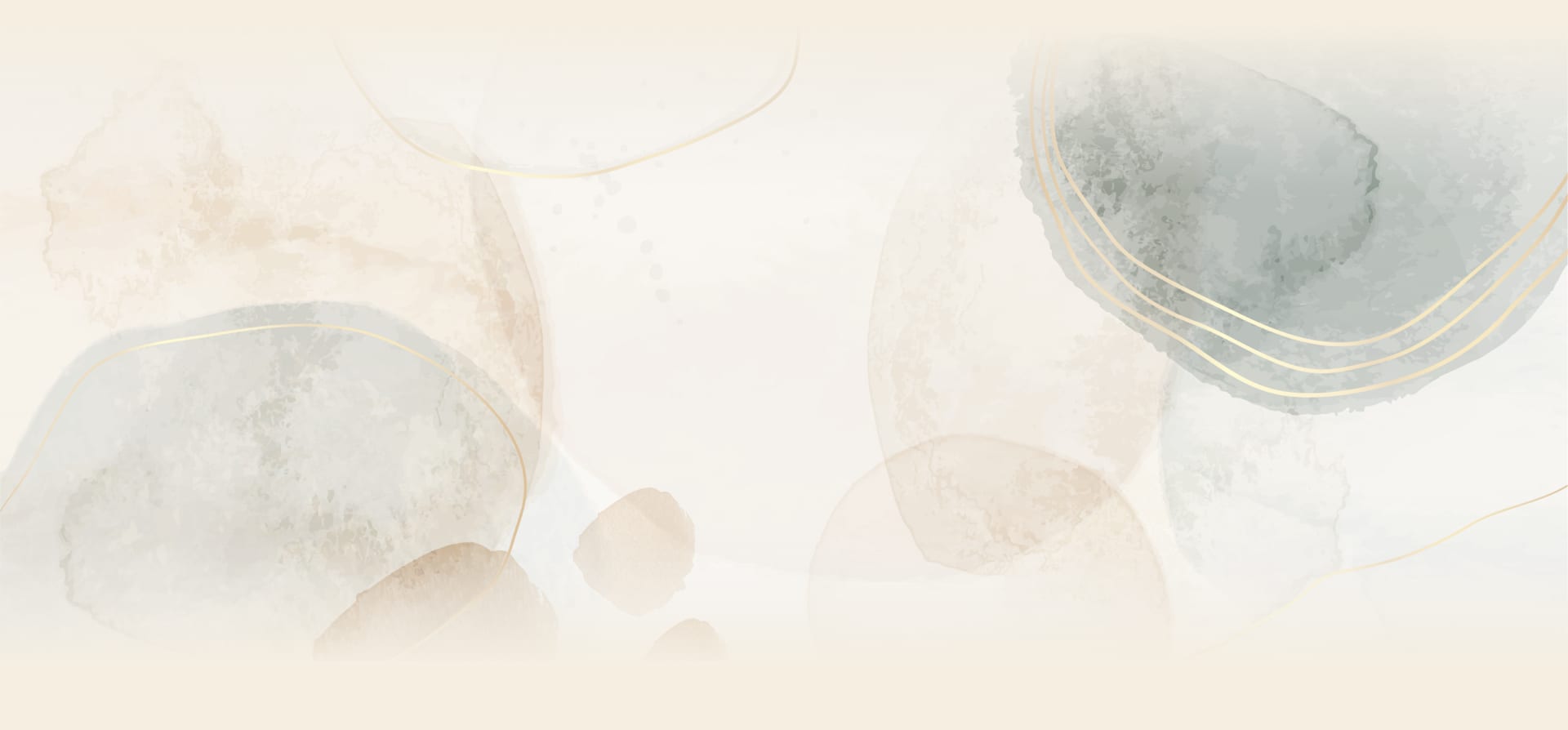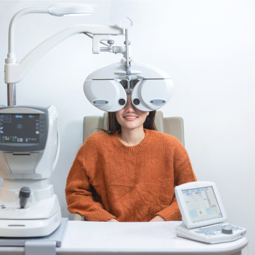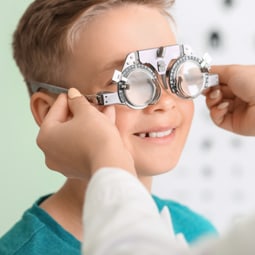Controlling Myopia Early
One reason children’s eye exams are important is because of the rapid development of a child’s eyes. The quick growth of the eyes is normal, but it’s important that problems are caught early if they do develop.
For example, your doctor can recommend myopia control if your child develops myopia early in life. Myopia cannot be reversed, but there are control methods that can slow or stop its progression.
Book an appointment with Dr. Parks to discuss myopia control options for your child.



What Is Myopia?
Myopia (nearsightedness) is one of 4 common refractive errors. Anyone can develop nearsightedness, but it typically develops between 6 and 14. Once it begins developing, it often worsens until the child reaches their early-to-mid 20s.
Myopia causes distant objects to look blurry, while close-up objects are clear. Some common myopia symptoms in children are squinting, trying to sit close to the TV or in front of the classroom, and frequent headaches.

Myopia Control
Once the eye finishes growing, it’s impossible to reverse myopia. The only option is refractive correction with glasses, contacts, or laser eye surgery.
Each child’s eyes and refractive errors are different, so there isn’t a one-size-fits-all answer for myopia control. Some common methods of myopia control include Ortho-K, specialty contact lenses, special prescription lenses, and atropine eye drops.
Ortho-K
Orthokeratology, also known as Ortho-K, is a unique technology that the child wears overnight. Clinical studies show that these contact lenses slow myopic progression by up to 56% when worn as recommended.
Wearing these lenses overnight gently reshapes the cornea and eliminates the need for correction during the day in most cases.
Specialty Contact Lenses
The severity of the refractive error is what typically determines what kind of correction will make the best control. There are several different types of specialty contact lenses other than Ortho-K that your eye doctor may have at their disposal.
Prescription Lenses
Contact lenses may not be an option if myopia control begins early enough for a child. Fortunately, there are also prescription lens options for eyeglasses that can offer suitable correction for myopia control.
Atropine Eye Drops
If you’ve ever had a dilated eye exam, it’s likely the eye doctor used atropine eye drops. But research has also shown that a low dose of 0.01% – 0.05% may be an effective form of myopia control in some children.
Myopia Complications
The point of myopia control isn’t simply to prevent the need for glasses in the future. While that is a perk, it’s still possible that a child may grow up and need glasses for another refractive error or another condition.
Unfortunately, myopia isn’t only a case of being unable to see things far away. It can also lead to future complications if left uncorrected:
- Poor school performance
- Poor quality of life
- Eyestrain and the headaches and discomfort that accompanies it
- Additional eye problems like cataracts, glaucoma, and even retinal detachment

Discuss Myopia Control Options With Your Optometrist
As parents, we want the best for our children. Research into myopia control has given parents one more tool to help preserve their child’s vision. If you think your child may be having vision issues, contact us today. Dr. Parks uses diagnostic equipment to ensure your child gets the care they deserve.
Our Google Reviews

Our Location
Convenient for You
Find us in the River Rock Village shopping center right in front of the pond.
Parking
There’s a large parking lot at our location, including several spots just outside our entrance.
Our Address
- 127 Village Drive, Suite 300
- Belgrade, MT 59714
Contact Information
- Phone: 406-388-9661
- Fax: 406-388-9662
- Email: [email protected]









